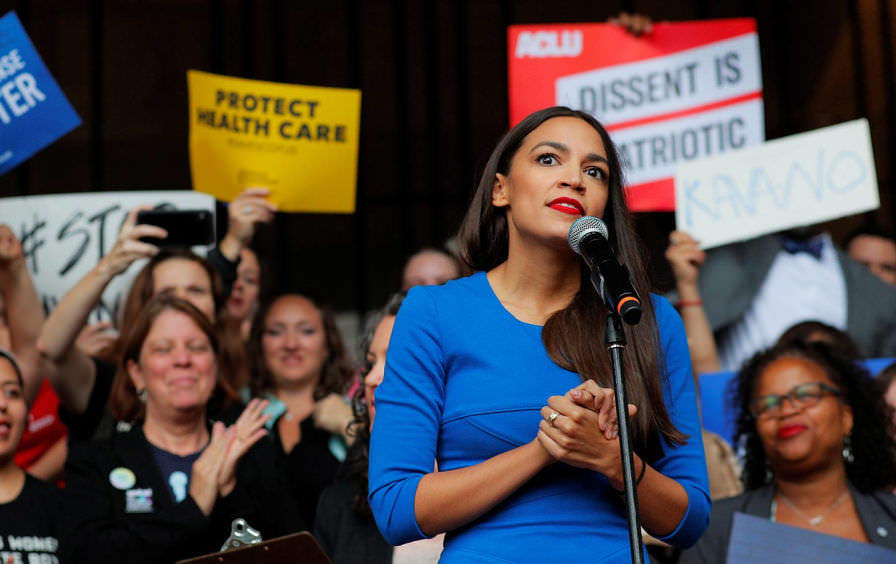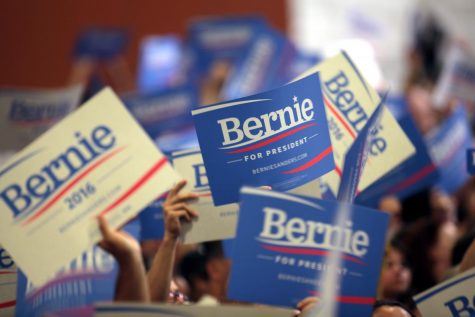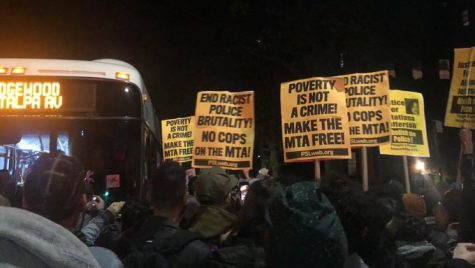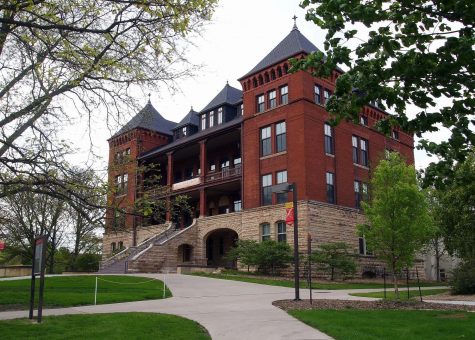Green New Deal Would Make America Great Again

Green New Deal Would Make America Great Again
Though Rep. Ocasio-Cortez’s Green New Deal requires immense commitment, it’s goal is to support future generations. (Courtesy of Flickr)
Though Rep. Ocasio-Cortez’s Green New Deal requires immense commitment, it’s goal is to support future generations. (Courtesy of Flickr)
February 20, 2019
Hang on for a minute...we're trying to find some more stories you might like.
Email This Story
By Jillian Kenny
The resolution for the Green New Deal, a Democratic policy initiative, was released on Feb. 7. It outlines the creation of new economic projects that will increase renewable energy usage and provide jobs to those who have been underprivileged for most of the nation’s history. The document underscores our duty to correct the environmental degradation caused by our country’s industrialization. It is our responsibility to support the Green New Deal because it will help combat the world’s largest impending issue: climate change.
The Green New Deal has two main objectives.
First, it aims to cut out all fossil fuel usage and replace much of the old, outdated and inefficient infrastructure. Second, it aims to correct injustices toward minorities and the poor.
The Green New Deal has been consistently criticized by the right for being too idealistic and expensive. It’s true that this legislation, if enacted, would cost a lot of money. But we are dealing with the most important issue for the future of America. Climate change, if left unchecked, will lead to the end of humanity as we know it. No amount of money is too much to solve an issue so large.
Climate change decreases biodiversity in all ecosystems, melts glaciers, breaks up ice on rivers and lakes, causes extreme weather, changes precipitation patterns and increases droughts and heat waves. All of these effects throw off the natural balance of the world’s ecosystem. Not only does it impact the ecosystem at large, but it decreases the quality of life for people living in all sorts of climates. If we are not doing what we can as a country to prevent these effects, we are doing a disservice to our citizens and the citizens of the world.
Based on scientific projections, rising sea levels alone project the displacement of about 13 million U.S. citizens by the end of this century. The Green New Deal will attack this problem on multiple fronts: it will improve infrastructure in areas prone to natural disasters and rising sea levels. The resolution also plans to eliminate greenhouse gas emissions to lessen the overall impact of climate change.
The second issue the Green New Deal wants to correct is the injustice faced by minorities and the poor. While the New Deal of the 1930s helped increase prosperity and created jobs for many, it did not do enough to promote civil rights. The Green New Deal takes on this task by creating jobs for people in underprivileged communities and improving quality of life for all.
The resolution aims to correct environmental injustices. The effects of climate change are felt most heavily by minorities, indigenous peoples and other populations described as “frontline and vulnerable communities” in the document. The goal is to provide jobs to these communities and correct the systemic injustices faced by these people. We should care about and support legislation that increases equality within the U.S.
The resolution states that climate change is an extreme threat to national security because it affects the economic and social stability of our country. The U.S. currently receives 81 percent of its energy from fossil fuels, such as oil, coal and natural gas. Since fossil fuels are liable to run out in the next 100 years, it is unwise to continue relying on them for energy; we need alternative sources. Otherwise, our entire economic platform will collapse.
The scientific community agrees that climate change is human-caused and has real, lasting and deadly effects on U.S. citizens. It is impossible to overstate the importance of this issue. It is crucial that we support legislation that creates a solution for this looming problem. Climate change is a problem that won’t go away on its own. If we don’t do our best to solve it now, it will only create larger problems and more intense conflicts in the future.
Criticism of this deal is absurd to hear coming from a party willing to spend billions of dollars building a wall across the entire U.S.-Mexican border. Despite their small-government bluster, Republicans are clearly willing to spend large sums on government projects when it suits them.
Starting projects that provide renewable energy would create millions of jobs working on long-lasting infrastructure. These jobs would replace those currently in the fossil fuel industry, which will become obsolete in the coming years anyway. It makes no sense to continuously pour billions of dollars into a dying industry. Our country should be looking toward the future, not using up the last of an unreliable resource.
The language of the resolution emphasizes an important detail of the deal: it is our duty to fix the environmental degradation caused by the United States’ industrialization. This is an ethical issue, and our country is at fault for much of the destruction of the world’s natural systems.
Yes, this is a very progressive initiative. It requires an immense level of commitment, but that is what is so great about the Green New Deal: it supports the future of our country and aims to make the lives of our citizens better, not only now, but for our future generations. If we cannot provide for the future of our country, we are disgracing those who have fought for our freedom.
Jillian Kenny, FCRH ’21, is an international studies and environmental studies major from Bridgewater, New Jersey.










How much of your future earnings will you commit to the GND? 40%? 60% 90%?
The estimates are it would cost TRILLIONS (93 Trillion dollars) and would not offer any noticeable difference in temperatures.
No wonder no one in the US Senate voted for the GND.